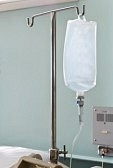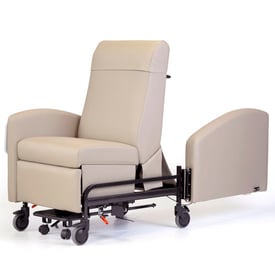Infusion Center Business Plans: 3 Key Indicators for a successful Infusion Center startup:
Clients often ask, how do we know if we will be successful in starting an infusion center - There are 3 Key Indicators that can help you as you explore the development of an infusion center. No matter what type of infusion center you developing the same factors will apply:
- Large Hospital Based Infusion Center
- Small Hospital Based Infusion Center
- Independent Ambulatory Infusion Center
- Specialty Practice Infusion Center - Infectious Disease, Gastroenterology, Rheumatology....

The 3 most important factors are:
1) Identify key referring physicians
2) Know your products that you will be infusing and their profit margins
3) Optimize the schedule to allow for efficient use of space, chairs and staff
We know that health care varys dramatically from state to state, but also, within each state there are various factors which will impact the opportuinties for physician referrals. As more and more physicians are acquired by hospitals they may or may not have the latitude to refer to an outside organizations. At the same time, we know that as hospitals continue to grow, there are significant opportunities to help practices become more efficient with infusion (by aggregating infusion patients to one center - either hospital based or provider based) as well as for hospitals to utilize their physicians more efficiently to enhance population health goals, mitigate readmissions or even to develop strategies to avoid an admission.
Step 1: Getting Started - Identify key referring physicians:
It sounds like common sense, but you have to know who will be referring cases to your infusion center. It starts with getting to know the market that you are working in . Often the MSA (Metropolitan Statistical Area) is a good place to start as you identify what the market is or could be for your center. Identify large groups of physicians that may want to refer to you. Typical providers may include:
- Infectious Disease Physicians - Consultative services in the Inpatient Setting is where they typically spend most of their time, but after they make a diagnosis they recommend the patient receive IV Antibiotics inpatient or potentially outpatient. If they have their own infusion center - they're probably not the right group to target.
- Rheumatologist: Many of the preferred products that are used to treat RA are infused. Many of the smaller rheumatolgy practices are challenged by pricing pressures and declining reimbursement. If they provide infusion therapy it may be a small part of their business and they may be interested referring their cases to another infusion center as long as there aren't conflicts for competing services
- Gastroenterologist: Similar to Rheumatology Gastroenterologists often use infused products to treat diseases such as Crohn's, Colitis and other diseases. Depending on the market, there may be opportunities to work with smaller groups or individual providers. Even for larger groups thay may make referrals to your infusion center.
Step 2: Do Your Research to identify which products that you will be infusing - and ensure that there will be adequate margins:
Drugs that are infused can be very inexpensive or very costly. Products often have relatively small margins,and therefore it is very important to identify the margin of the products that you will be infusion. You may also be surprised to learn that the methods of reimbursement by carrier can vary significantly as well. Make sure you calculate the margin on drugs you contemplate infusing by:
- Evaluating the margin based on the "typical dose" for your patient - often multiple vials of a product will be required. Evaluating the total cost to deliver the product is important as these products can be very expensive.
- Make sure that you have the correct J-Code to bill to product correctly - erroneous coding can cost your center a significant amount of money.
- To learn more visit our website for infusion center start-up http://www.huizenga-consulting.com/infusion-center-consulting-start-up

Step 3: Once your center is open - ensure that you have optimized the schedule:
Anticipating growth, even significant growth can be exciting - but plan for what you need. Building in significant additional capacity only adds expenses. Focus on utilizing the chairs and equipment you have as efficiently as possible:
- Match the number of infusion chairs to staff you have - typically 3 chairs to 1 nurse
- Do not schedule your complex patients all at once - complex infusions require labor intensive monitoring such as frequent:
- Blood Pressure
- Pulse oximitry
- Temperature
- Create "slots" for blending complex biologic drug patients with relatively routine antibiotics or rehydration.

Contact us to to learn more how we can help you grow your center strategically - we have experience with all types of infusion therapy
The infusion center business is complex. Any infusion start-up business can be a challenge whether you are a small hospital, a physician practice or a large hospital system. Our team can help you with our expertise to help you learn how to take a systematic approach. Planning is the key - much of what makes an infusion center successful is about knowing the details. If you would like some help, please call us today for a free 30 minute consult. Call 1-866-222-4488 to to learn more - or use this contact form /contact-us to schedule a time to talk with one of our experts
.


